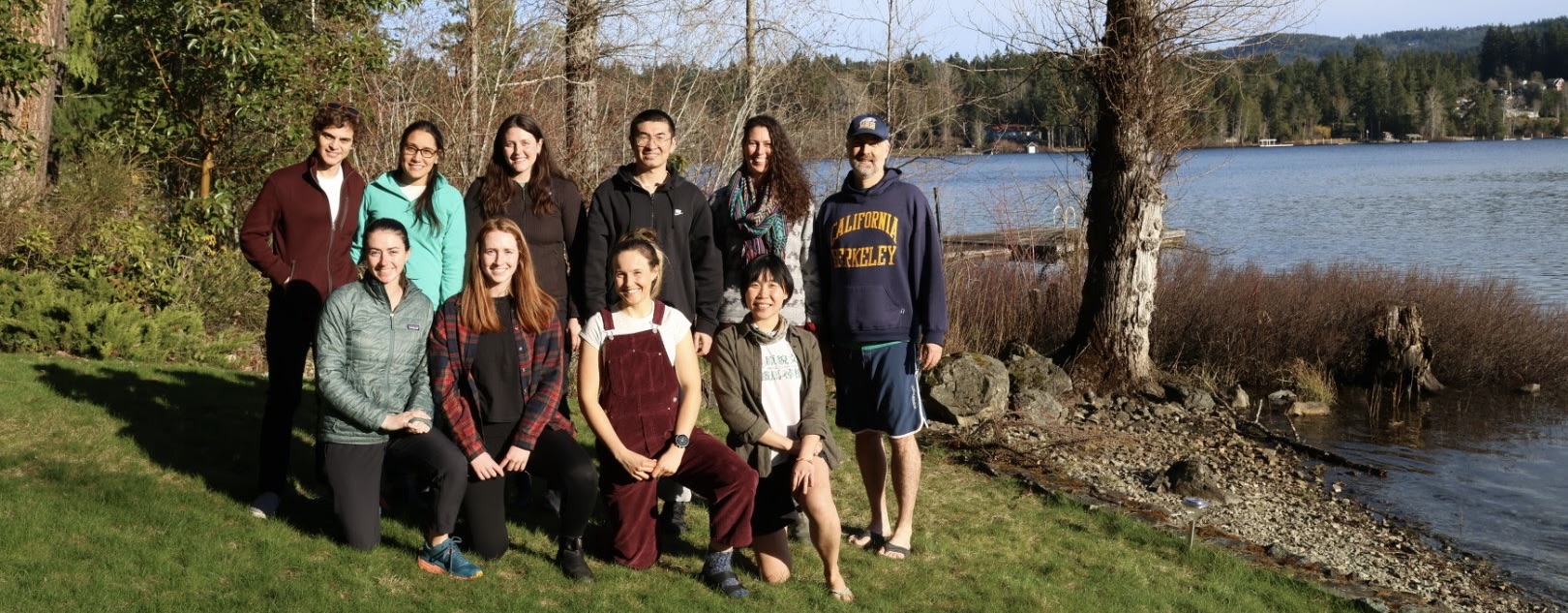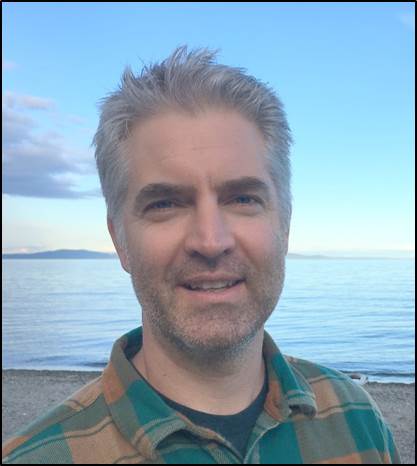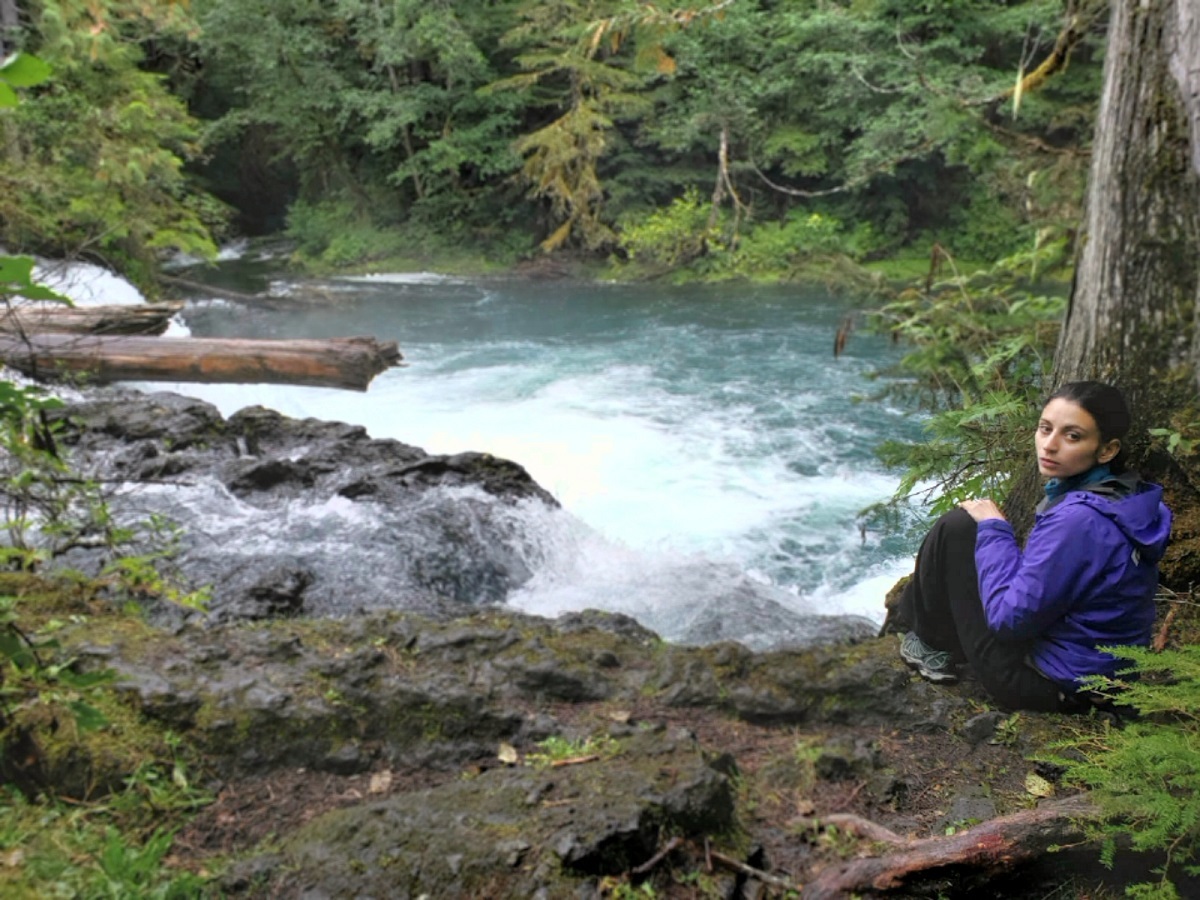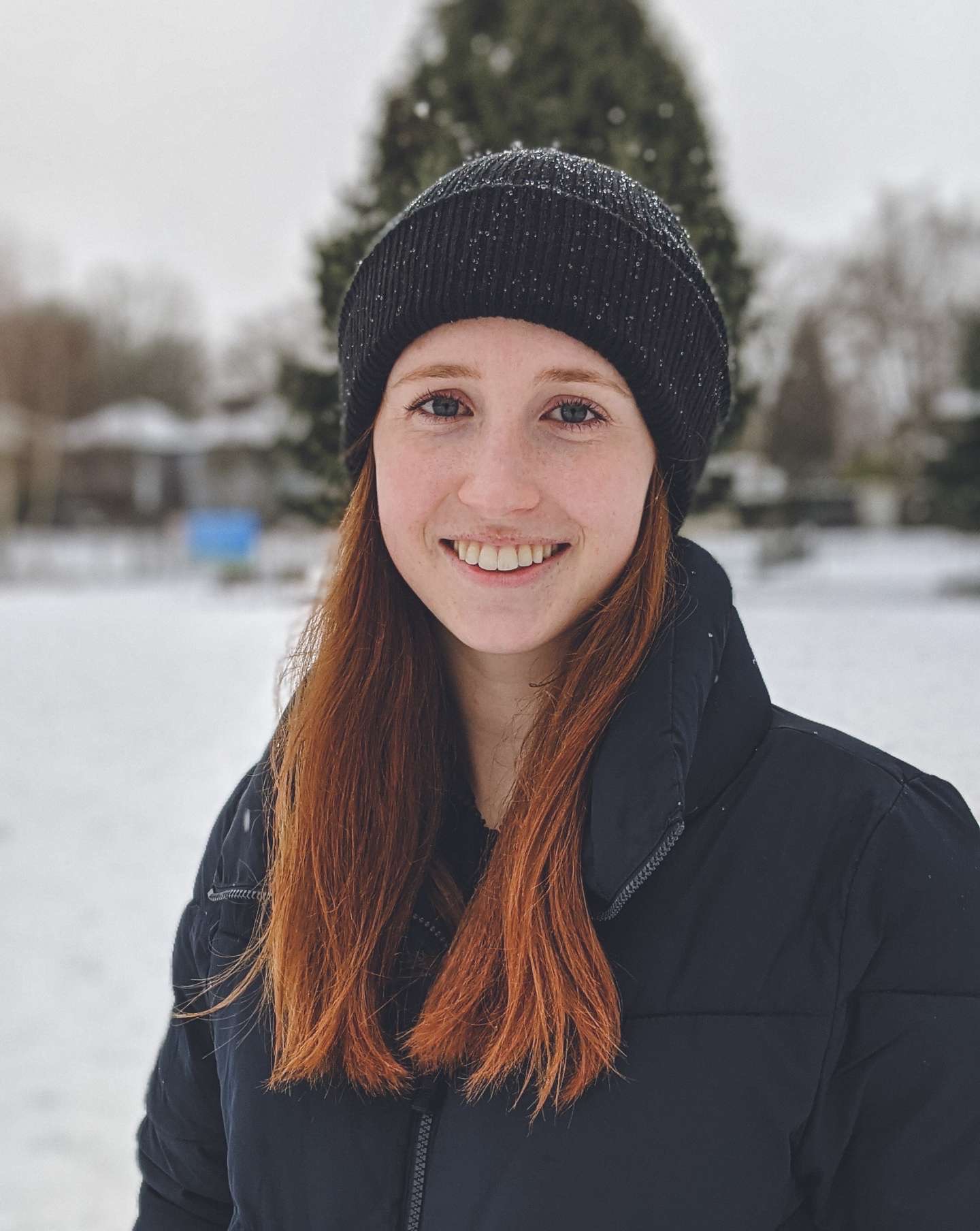
Cole Burton
Dr. Cole Burton is an Associate Professor in the Department of Forest Resources Management, Canada Research Chair (Tier 2) in Terrestrial Mammal Conservation, and the Principal Investigator of the WildCo Lab. Cole has worked collaboratively with governments, industries, ENGOs, and academics in Canada and around the world. He has an M.Sc. in Zoology from UBC and a Ph.D. in Environmental Science, Policy and Management from the University of California, Berkeley. Cole’s research is motivated by the challenge of human-wildlife coexistence on a crowded planet and he specializes in studying terrestrial mammal responses to changing environments using innovative methods such as camera traps and hierarchical modelling.
Research scientists and post-docs | PhD students | Masters students | Undergrads & Techs
PhD students
Tazarve Gharajehdaghipoor
Taz started her PhD in 2020. Her research seeks to understand the extent of bottom-up and top-down effects of forest harvesting and natural disturbances on the rapidly declining Itcha Ilgachuz caribou herd. Taz completed her M.Sc. in Wildlife Ecology at the University of Manitoba, and earned her B.Sc. in Biology from McGill University. Prior to joining WildCo she worked with Panthera conducting camera trap surveys for Critically Endangered Indochinese leopards in remote Cambodia. She has also worked as a Data Analyst on several projects on radio-collared black-backed and golden jackals for the Wildlife Conservation Research Unit (University of Oxford), and with the migratory landbird monitoring program in Alberta oil sands for the Canadian Wildlife Service.
✉ tghhrs@mail.ubc.ca
Erin Tattersall
Erin Tattersall originally joined the WildCo Lab as a MSc student in January 2017 and returned as a PhD student in May 2022. Her PhD work explores the intersection of Western scientific and Indigenous sovereignty priorities within the Northwest Territories Biodiversity Monitoring Program, a collaborative initiative aimed at enhancing wildlife data collection across the territory. Her research focuses on two main themes: 1) Indigenous Data Sovereignty (IDS, or the authority of Indigenous Peoples to govern data according to their own laws and protocols) in collaborative monitoring, and 2) applications of wildlife data that support Indigenous stewardship priorities, namely the conservation of wildlife valued as cultural keystone species or as food sources. Erin lives in Nelson, BC, on the unceded, traditional and ancestral territory of the Sinixt, Ktunaxa, and the Syilx Peoples.
✉ tatterer@student.ubc.ca
Murat Ersalman
Murat joined the WildCo Lab in May 2025 for his PhD. His research interests center on the development and application of hierarchical statistical models and data integration techniques to investigate species-habitat relationships and demographic processes. He holds an M.Sc. in Biomathematics from the University of Helsinki, where his thesis focused on developing a Bayesian integrated population model for the Baltic ringed seal to assess the effects of environmental and anthropogenic drivers on demography and behavior. Before transitioning to ecological research in his master’s, Murat earned a B.S.E. in Industrial and Operations Engineering from the University of Michigan and worked as a financial modeler at Kroll.
✉ murat.ersalman@ubc.ca
Research scientists and post-docs | PhD students | Masters students | Undergrads & Techs
Masters students
Ali Dimitriou
Ali joined WildCo in June 2023. Her Masters research focuses on the effects of recreation on mammal diversity and behaviour in Mount Robson, Joffre Lakes and Garibaldi Provincial Parks. Through her research in collaboration with BC Parks, she aims to use camera trap surveys during and after major trail closures (e.g. COVID-19 and natural disasters) to better understand how recreational activities impact wildlife communities. The goal of this research is to inform adaptive management in protected areas to facilitate coexistence in shared landscapes. Prior to WildCo, she worked in insect ecology and Andean bear conservation research, and as a BC Parks Student Ranger in Mount Robson.
✉ adim@student.ubc.ca
Zoe Konanz
Zoe started her MSc in the WildCo Lab in September 2024 but began working as a Research Assistant in her undergrad in 2021. During her time working for WildCo as a staff member, Zoe helped process images and assisted with fieldwork for a variety of projects in the lab, but primarily focused her efforts on the Itcha Ilgachuz Caribou project. During this time, she also completed a directed study involving estimating the density of feral horses in one of the Itcha grids using mark-recapture methods and natural markings. Her thesis research examines how cultural burning affects habitat use and forage of ungulates on Tŝilhqot’in lands. Her work is part of a larger collaborative Indigenous Fire Stewardship program with Yunesit’in First Nation and Gathering Voices Society. She hopes that her research can help communicate the amazing work that Yunesit’in is doing while reducing systemic barriers that hinder Indigenous Fire Practitioners.
✉ konanz@student.ubc.ca
Hannah Bates
Hannah started her MSc with WildCo in 2024, and is co-supervised by Dr. Robin Naidoo. Her research will use an established camera trap network in the South Chilcotin Mountains (St’át’imc territory) to investigate demography and survival of Mule Deer, whose population has been in decline. This research will utilize 7 years of continuous camera trap data collected both within and adjacent to South Chilcotin Mountains Provincial Park, which has been affected by large wildfires and is neighbouring forest harvesting and hydro-electric dams. Before her MSc, she guided backcountry paddling and hiking tours in the Yukon, and assisted with research on bumble bees in BC, and bonobos in the DRC.
✉ hbates98@student.ubc.ca
Tristen Brush
Tristen started her MSc in the WildCo Lab in September 2024, after completing her undergraduate studies in UBC Forestry’s Conservation program. Her master’s project builds on research she conducted as a wildlife technician with the BC Ministry of Water, Lands, and Resource Stewardship on improving population abundance estimates of Roosevelt elk in the South Coast region of BC. She is applying distance sampling, a long-established and low-cost abundance estimation technique, to camera trap data, a newer form of wildlife data collection that enables non-intrusive observation of elusive species. Using camera data collected on the Sechelt Peninsula, Tristen hopes to provide her shishalh Nation collaborators with accurate and precise estimates of elk, deer, and bear abundance on the Sechelt Peninsula as well as a how-to guide for conducting similar studies in the future. By bridging scientific innovation with practical applications, this research seeks to contribute to the sustainable management of culturally important wildlife populations for the well-being of First Nations, local communities, and beyond.
✉ teb310@mail.ubc.ca
Research scientists and post-docs | PhD students | Masters students | Undergrads & Techs
Undergraduate research technicians and volunteers
Lindsay Watson
Lindsay is entering her fifth year in Biology and joined the WildCo Lab in September 2024 as a volunteer. Her roles include helping Ali Dimitriou with processing camera trap data for her project and helping with any other projects in the lab. Prior to this, Lindsay worked in wildlife rehabilitation in a local wildlife rescue centre, taking care of injured and orphaned birds with the goal of release back to their natural habitat. Lindsay is extremely interested in terrestrial mammal conservation and wildlife ecology and is fascinated to learn more about the impacts of human activity on wildlife populations.
Vanessa Duthie
Vanessa is entering her fourth year in forestry focusing her studies on natural resources conservation. She started with Wildco in March 2025 as a volunteer tagging camera trap images for graduate student Hannah Bates. As of May 2025, Vanessa now works as a research assistant for the lab. Her roles include assisting with field work such as maintaining camera grids and vegetation surveys in South Chilcotin Mountains Provincial Park (St’át’imc territory) as well as on Tŝilhqot’in traditional and unceded territories. While not in the field, other roles include image processing and data entry for a variety of projects within the lab. Vanessa has a keen interest in wildlife ecology and management and is excited to learn more about the impact humans have on the landscape.
Elena Ferry
Elena, a third year student studying Natural Resources Conservation in the Faculty of Forestry, first joined WildCo in January 2025 as a Volunteer Image Tagger. During this time she helped to process camera trap images, a task she is excited to carry over into her new role as a WLIURA Research Assistant. Her tasks will include both field and lab work, and she can’t wait to spend her summer experiencing and protecting the natural beauty of BC. She is most passionate about wildlife ecology, the effects of land-use change, and community-based conservation.
Mary Haanen
Mary Haanen is a fourth year Forest Resource Management student at UBC. Over the past two summers, she has gained practical field experience working as a forest technician on post-disturbance forest regeneration projects, with a focus on landscapes affected by wildfire. She is currently contributing to Wildco’s large-mammal conservation and human-wildlife coexistence initiatives through laboratory research, maintenance of camera trap grids, and field surveys conducted in Mount Robson Provincial Park and the South Chilcotin region of British Columbia. On the side, she dabbles in logger sport competitions and leading the UBC Student Environmental Centre.
Audra Cornick
Audra is entering her fourth year in Environmental Sciences, specializing in ecology and conservation. She joined the lab in May 2025 as a Research Assistant. Her work includes analyzing coyote scat samples from Itcha Ilgachuz Park to better understand their diets, helping maintain camera trap grids, and assisting with field surveys. She previously researched shifts in the temporal behavior of urban coyotes in Vancouver across various levels of urban environments. Audra is passionate about large mammal conservation and is particularly interested in understanding human-wildlife interactions. She is excited to gain hands-on experience in wildlife monitoring and applied conservation research.
Research scientists and post-docs | PhD students | Masters students | Undergrads & Techs
Visiting students
Sunny Tseng
Sunny Tseng is a PhD candidate at the University of Northern British Columbia and a visiting student in the WildCo Lab at UBC. Originally from Taiwan, Sunny entered the birding world as a field sound recordist, capturing the songs and calls of nearly 300 bird species. During her time in the WildCo Lab, she has enjoyed collaborating with camera trappers and sharing her expertise in bird acoustics. Her PhD research focuses on using acoustic monitoring to study avian biodiversity in interior British Columbia, Canada. She integrates acoustic data with machine learning techniques (BirdNET) to address key ecological questions.
Research scientists and post-docs | PhD students | Masters students | Undergrads & Techs
Staff
Katie Tjaden-McClement
Katie started her MSc in the WildCo Lab in September 2021, after previously completing her undergraduate honours thesis in the lab and working as a research technician on various projects in the lab. Her masters research uses camera traps to investigate interspecies interactions in the large mammal community of the Chilcotin Plateau in west-central BC. She will be evaluating disturbance-mediated apparent competition as a driver of population decline for the Itcha-Ilgachuz caribou herd, where forest harvesting and forest fires provide enhanced forage for moose and mule, allowing predator populations to increase, ultimately causing increased predation on the caribou. She is also evaluating potential impacts of a large feral horse population in the area and whether they may be competing with and negatively effecting native ungulates, particularly moose.
✉ k.tjaden-mcclement@alumni.ubc.ca
Raunaq Nambiar
Raunaq began working at WildCo after completing his undergraduate degree in conservation at the Faculty of Forestry. His work as a staff member ranges from processing images, maintaining equipment, and project partner engagement and outreach. He helps co-ordinate WildCAM, a multi-institutional network of camera trapping and wildlife professionals, academics, and policy-makers that focusses on research capacity-building, science communications, and developing/reviewing best practices in the camera-trapping universe. He is keenly interested in the science-policy interface, and in helping make the lab’s academic work more accessible to other user groups, from the general public to policy-makers and practitioners in government and local communities. Before WildCo, he worked on black bear conflict management project in Manning Park in collaboration with BC Parks, and has volunteered for various labs at UBC and with NGOs like the Stanley Park Ecology Society and the UBC Farm.
✉ raunaq.nambiar@ubc.ca















